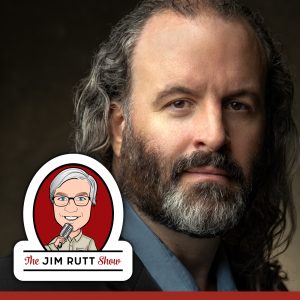
Jim talks with Timothy Clancy about the Israel-Hamas War following Hamas's October 7 attack on Israel. They discuss the sorting-out period that follows the end of an empire, Jerusalem as a perpetual battleground, 3 questions for understanding conflict, a missed opportunity for Jordan to take back the West Bank, what happened on October 7, recovering the sense of security, the scale of the atrocity, strategic limitations of bloodlust, unconditional surrender, grievance, pulling weeds vs addressing root grievances, the civil war between Fatah and Hamas, the story behind Yasser Arafat's rejection of the potential settlement between the Palestine Liberation Organization & Israel, ways to invade a city, the increasing likelihood of a ceasefire, the difference between conventional & asymmetric warfare, the importance of contingencies & constraints, the arms supply from the U.S. to Israel, the increase of Western support for Hamas, alignment with grievance, the role of Indian & Bangladeshi bot farms in increasing Palestine-Israel tensions, the colonial narrative, a system for analyzing grievances, Timothy's prediction for long-term trajectory, contingent factors of the rise of Iran, employment as a cure for grievance, Gaza as a feral city, and much more.
Episode Transcript
JRS Currents 057: Timothy Clancy on Russia's Mid-Game
START Researcher Spotlight: Timothy Clancy
"Dynamics of Atrocity Scripts in Conflict," by Timothy Clancy
"Theory of an Emerging-State Actor: The Islamic State of Iraq and Syria (ISIS) Case," by Timothy Clancy
Timothy Clancy is an Assistant Research Scientist at START specializing in studying wicked mess problems, including violence and instability, as complex systems. Current research topics include understanding violent radicalization as a system, the terror contagion hypothesis for public mass killings, the emerging-state actor hypothesis for asymmetric and irregular warfare conflicts, and advancing methods for modeling social complexity through computer simulations integrated with AI.
view more
More Episodes
EP63 Michel Bauwens on P2P & Commons
 2020-07-06
2020-07-06
 2020-07-06
2020-07-06
EP62 Zak Stein on Education, Tech & Religion
 2020-06-29
2020-06-29
 2020-06-29
2020-06-29
Currents 007: David Fuller on the IDW
 2020-06-24
2020-06-24
 2020-06-24
2020-06-24
EP59 Gregg Henriques on Unifying Psychology
 2020-06-11
2020-06-11
 2020-06-11
2020-06-11
EP58 Jake Bornstein on Leadership & Clarity
 2020-06-08
2020-06-08
 2020-06-08
2020-06-08
EP56 Art Brock on Holo Tech
 2020-05-28
2020-05-28
 2020-05-28
2020-05-28
EP55 Jack Murphy on Leaving the Left
 2020-05-25
2020-05-25
 2020-05-25
2020-05-25
EP54 Robert Conan Ryan on Boom & Bust Cycles
 2020-05-18
2020-05-18
 2020-05-18
2020-05-18
EP53 Hanzi Freinacht on the Nordic Ideology
 2020-05-11
2020-05-11
 2020-05-11
2020-05-11
012345678910111213141516171819
Create your
podcast in
minutes
- Full-featured podcast site
- Unlimited storage and bandwidth
- Comprehensive podcast stats
- Distribute to Apple Podcasts, Spotify, and more
- Make money with your podcast
It is Free
- Privacy Policy
- Cookie Policy
- Terms of Use
- Consent Preferences
- Copyright © 2015-2024 Podbean.com






